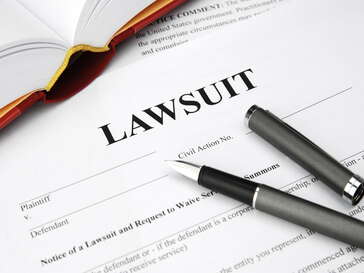
As an established Dallas real estate firm, we meet with many clients who need to clarify who owns their property.
Sometimes, they are worried that ownership might be unclear because the property was deeded by quitclaim deed or they are fighting off an adverse possession.
Whenever there is a cloud over the title to property, a quiet title action is a must.
To quiet title, Texas law allows you to file an action in court. You should understand the requirements, which we explain below.
Identify Your Right to Title
Typically, someone is trying to claim ownership of property that is yours. To bring a successful quiet title action, Texas law requires that you convince a judge that you have superior title.
For example, you might have a deed in your name or a promissory note. Find your evidence and meet with an attorney for help building a case.
Draft a Petition
You file a petition in court which should identify the parcel and provide background detail about the dispute. You should also refer to any claim being made by a different party.
A petition needs to be in a certain form, so try to find a sample or get a blank form from the local court house, if one is available.
You should also consult with a real estate dispute attorney if you need help. A suit to quiet title Texas is high stakes, and you don’t want to make any errors that weaken your case.
File a Petition in Court and Send Notice
You will have to pay a filing fee when you take your petition to file. Call the court clerk ahead of time and ask how much it costs. Also find out what methods of payment the court accepts.
Once you file, you will need to serve a copy of the petition and other paperwork on the other party to the dispute. Texas law has strict rules for giving proper service, so make sure you understand them. An attorney can make sure you comply with the law.
Read the Response
The other party to the dispute will file a response to your complaint and send you a copy. You should read it carefully, noting what arguments the other side is making. Often, they will disagree with your factual allegations and allege they have superior title.
Attend a Hearing
Each side can present evidence on their behalf at the hearing. Evidence can take many forms, including documents or witness testimony. Each side can also cross examine the other’s witnesses.
At the end of the hearing, the judge should make a decision. If you win, the judge will sign an order nullifying any other claims to the property. This will make you the sole, clear owner of the disputed property.
Get the Legal Help You Need
Trying to quiet title can be very complicated, and you might benefit from the experience of a Dallas real estate attorney by your side. For assistance, please contact Khirallah PLLC today.
We have helped many clients establish their rights to real estate, and we will move quickly on your behalf as well. You can schedule an initial consultation by calling 214-302-0462.




